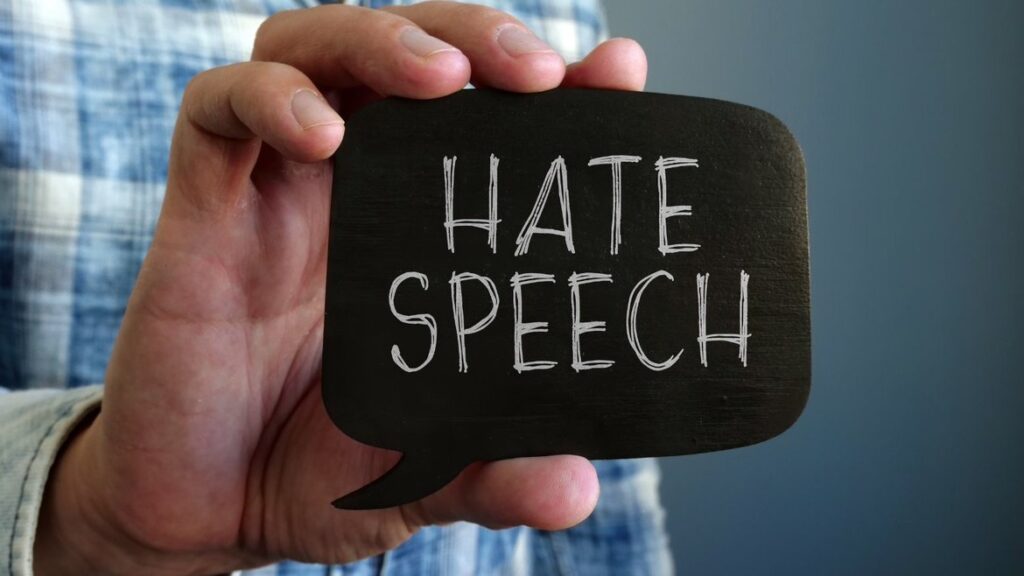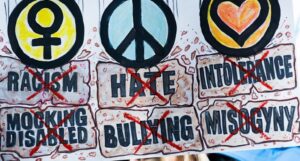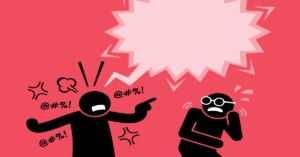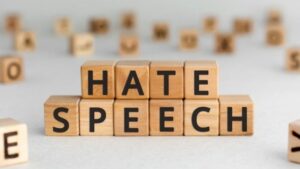
WHY HATE SPEECH IS THRIVING IN INDIA
Hate speech is not a new phenomenon in India. However, in recent years, it has gained greater prominence and momentum, resulting in incidents of violence and communal strife. The problem is not only a threat to the country’s social fabric but also poses a challenge to its constitutional values. This article explores the reasons why hate speech thrives in India and why authorities have failed to curb it.
DEFINING HATE SPEECH
Before delving into the reasons behind the surge of hate speech in India, it is essential to understand what hate speech entails. Hate speech refers to language that offends, threaten
s, or insults a particular person or group of people on the basis of their race, ethnicity, religion, nationality, gender, sexual orientation, or another characteristic. Hate speech can take various forms, including verbal abuse, name-calling, ridicule, and hate propaganda.
HATE SPEECH IN INDIA: A GROWING CONCERN
Hate speech has been a persistent problem in India for many decades. In 1990, mosques in Kashmir used inflammatory speeches to incite hatred against Hindus, leading to their exodus from the Muslim-majority Kashmir Valley. The same year, the demolition of the Babri mosque in the northern town of Ayodhya by Hindu mobs sparked deadly communal riots.
However, in recent years, the scale and intensity of hate speech have accelerated. Indians are frequently exposed to hateful rhetoric and polarizing content, with social media and TV channels amplifying the messages even of minor politicians. The hateful rhetoric appears to be “pervasive” and “non-stop,” as noted by political scientist Neelanjan Sircar.
News channel NDTV, which has been tracking “VIP hate speech” since 2009, reported in January 2022 that offensive comments made by major Indian politicians, including ministers and lawmakers, have increased manifold since Prime Minister Narendra Modi’s Hindu nationalist government came to power in 2014.
Several BJP leaders, including a federal minister, have been accused of
getting away with hate speech. Some opposition politicians, such as parliamentarian Asaduddin Owaisi and his brother Akbaruddin Owaisi, have also been accused of giving hate speeches. Both deny the accusations, and Akbaruddin Owaisi was acquitted in two hate speech cases from 2012 on Wednesday.
REASONS WHY HATE SPEECH THRIVES IN INDIA
Lack of Legal Definition for Hate Speech
India does not have a legal definition of hate speech. However, several provisions across laws prohibit certain forms of speech, writing, and actions as exceptions to free speech. These include criminalizing acts that could promote “enmity between different groups on grounds of religion” and “deliberate and malicious acts intended to outrage religious feelings of any class by insulting its religion or religious beliefs.”
The issue of hate speech has often come up before India’s courts. However, the judiciary has mostly been wary of imposing restrictions on free speech. In 2014, while hearing a petition asking the Supreme Court to issue guidelines to curb hate speeches made by political and religious leaders, the court recognized the adverse impact these could have on people but refused to go beyond the scope of existing laws.
According to legal experts, India has enough laws in place to check hate speech. But they require the executive to enforce them, and most of the time, they do not want to act.
Religious and Political Polarization
Religious and political polarization is one of the key reasons behind the surge of hate speech in India. India is a diverse country with a rich history of pluralism and diversity. However, in recent years, there has been a growing trend of intolerance and bigotry. This trend is particularly evident in
In conclusion
hate speech has become a pervasive and alarming problem in India. Despite the existence of laws to check it, hate speech often goes unpunished due to the lack of enforcement and institutional autonomy. This not only fails to deter hate speech but also normalizes it, leading to a more hostile environment that intimidates and harms people. The issue of hate speech needs to be addressed urgently, and the government needs to take effective steps to enforce existing laws, hold perpetrators accountable, and ensure the safety and dignity of all citizens. It is time for India to reaffirm its commitment to a pluralistic, inclusive society that respects and celebrates diversity and rejects hate speech and bigotry in all forms.
Disclaimer
The views and opinions expressed in this article are solely those of the author and do not necessarily reflect the official policy or position of any organization or individual mentioned. The information provided in this article is for general informational purposes only and should not be construed as legal or professional advice. Any reliance you place on such information is therefore strictly at your own risk. The author and publisher do not take any responsibility for any consequences that may arise from the use of the information presented in this article. The reader should always consult a qualified professional for advice on specific legal, financial, or other matters.




great article